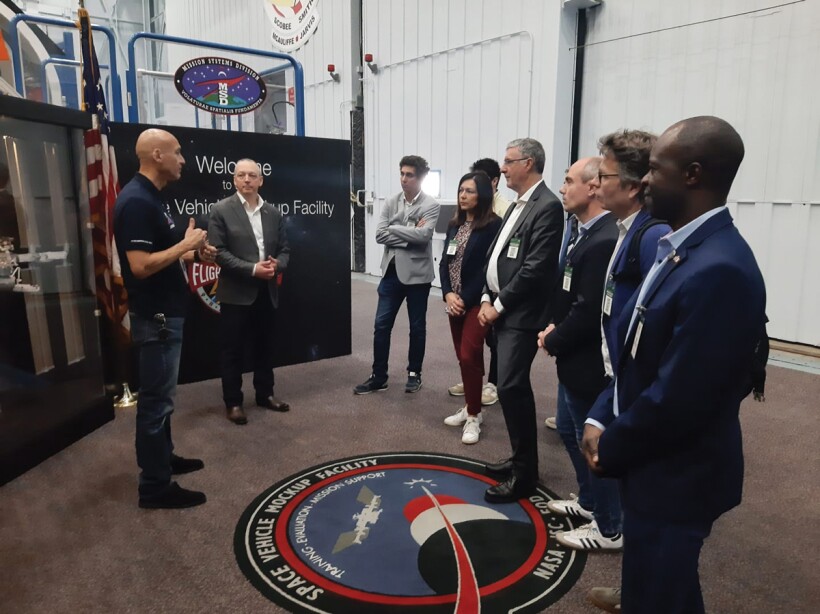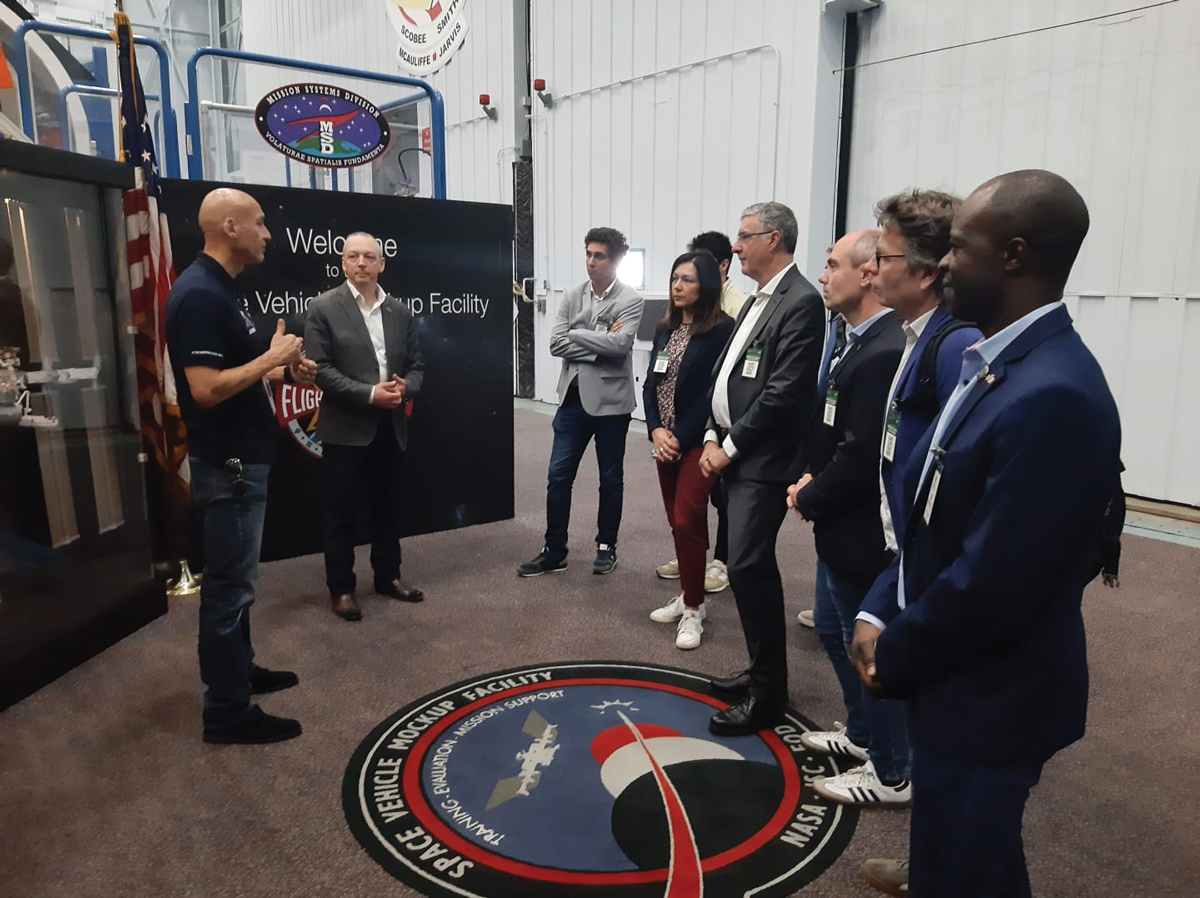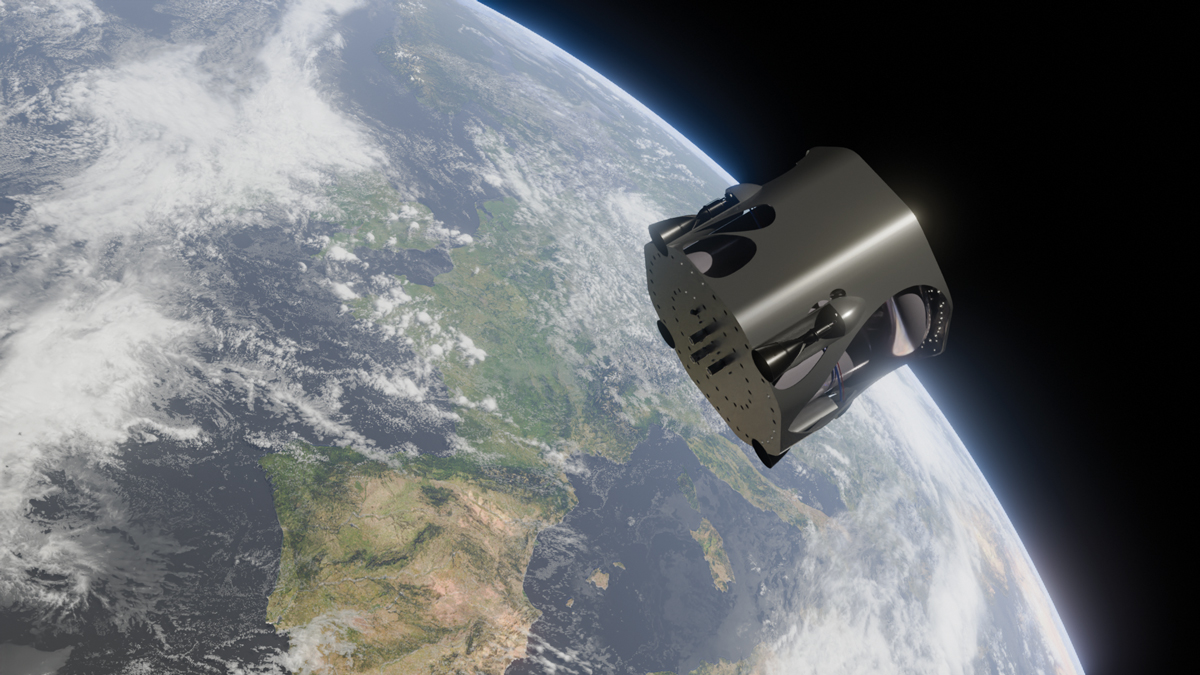French space companies come to Texas for a startup accelerator program
DOI: 10.1063/pt.osbo.dpcn

Representatives from French startups in the Texas–France space accelerator inaugural class visit NASA’s Johnson Space Center in Houston, Texas, in April. (Photo by David Alexander.)

For many years, collaborating with other countries to bolster space technology was the job of governments. But today, space companies do most technology development. Forging international partnerships between businesses is tricky; for one, US trade laws closely control imports of space technology because of its potential link to military activities.
Rice University launched a new initiative this spring to address that key challenge. It paired up with Business France and CNES, France’s national space agency, to create a six-month accelerator program that is familiarizing French space startups with the US market.
“There are really good ideas out there that may help the US space industry do things cheaper or better or more quickly,” says David Alexander, the Rice Space Institute director and professor of physics and astronomy who coleads the accelerator program. He wants Rice to become a jumping-off point for international startups—not only from France but also from Germany, Mexico, Japan, and other countries—looking to enter the US commercial space ecosystem.
Gaining a foothold
The inaugural class of four French startup companies arrived in April. Each focuses on one of the following areas: satellite-based methane detection, software innovation, green propulsion, and power electronics. The four companies spent the first six weeks in Paris with Business France discussing US markets and business development. They then traveled to Houston to refine their sales pitch for a US audience and to network with Texas-based space companies over three months. During the final six weeks, they returned to France to consider the legal, customs, and human resources needs and intellectual property rights for their companies.
French participant Agena Space makes nontoxic liquid propellants for small commercial satellites. Alexander says that the company’s technologies could one day help with in-space service assembly and manufacturing, one of the most challenging and important space technology areas for development. For instance, components of a space habitat could be launched separately and assembled in space. The program also aims to support R&D for lunar exploration and long-duration crewed missions.
Frédéric Rossi, Business France’s regional director for North America, says the accelerator saves French startups time and money by introducing them to high-level industry contacts through the Rice Space Institute. Agena Space’s chief commercial and business development officer, Jean-François Fenech, says it would have taken more time and been more difficult to make new connections with US companies without the accelerator, even though the US market size for small satellites is about twice as large as Europe’s. Through the program, he found additional people interested in learning more about Agena’s products.

A small satellite propulsion system orbits above Earth in this illustration from Agena Space, a French company that is developing nontoxic liquid propellants. (Image from Agena Space.)

A successful pitch meeting by a French startup could lead to holding follow-up meetings with an interested customer, signing a nondisclosure agreement, and beginning a collaboration, says Alexander. Foreign companies cannot compete for US government contracts, but their technology could be procured by a US-based company doing government work. Many US space companies have a presence in Texas, including well-established businesses like SpaceX, Boeing, and Lockheed Martin and high-market-value newcomers like Axiom Space and Firefly Aerospace.
The program has been relatively immune to recent US policy changes. The Texas–France space hub is fully funded by the French through a combination of private and government funds; no US government funding was used for the program. France is a member of the US visa waiver program, and there have been no disruptions to visa access this year, says Rossi.
International collaboration
This isn’t the first accelerator held in Houston for international space companies. Six Italian startups visited the city for five weeks in 2023. The Space Foundation, a nonprofit advocacy organization for the space industry, partnered with the Italian Trade Agency and the Italian Space Agency to organize the program
Kelli Kedis Ogborn, the Space Foundation’s vice president of space commerce and entrepreneurship, says the nonprofit organizations and universities that set up the programs are key players. The organizations have access to high-quality, credible information about technology and policy, and they can act as a neutral third party connecting commercial players.
Alexander doesn’t see the program as a threat to US businesses. A US-based company offering better or cheaper technology will still outcompete a foreign competitor, he says. He hopes that the initiative will “bring in a different set of ideas.” Rice’s second accelerator class will arrive in the fall, with funding being renewed annually for the next three years.
US startups could one day travel to France through a reciprocal program to pitch European space industries, says Hugues Mbezal Bogam, the Rice Space Institute’s space liaison with France. “We strongly see that having a more diverse and more dynamic industry will foster the development of the commercial space market,” he says.
This article was originally published online on 18 August 2025.
More about the authors
Jenessa Duncombe, jduncombe@aip.org





